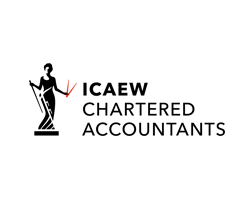August 5th, 2019Should I Incorporate My Property Business? Part III
Phase 1: Initial purchase, or “getting on the landlord ladder”
In this instalment, we’ll be looking at the issues and costs associated with the first phase of the property life cycle, the initial purchase or transfer.
There are two scenarios:
- The transfer of a property already owned by you personally into the company
- The first purchase of the property is by the company
Transfer of property into the company
This scenario is by far the more complex and presents the greater scope to incur costs.
First, some commercial considerations:
- It is much, much easier to put a mortgaged property into a company than it is to take it back out again. I can’t stress this point enough
- It is easier (and cheaper) to change the ownership of a company than it is to change the ownership of a property
- The BTL mortgage market for companies is much smaller, albeit growing, than that for individuals so you may need to switch lenders
- BTL mortgage lenders usually require lower loan-to-value when lending to companies so you may need to inject more capital when refinancing
- You’ll be required to personally guarantee the mortgage, so the limited liability afforded by the company will not save you if the company cannot keep up with repayments
You then need to think about when is the right time to incorporate. If you have significant brought forward property losses then you will want to utilise these before incorporating. Losses cannot be transferred into your company with the property and tax relief for them will be wasted if you don’t use them up.
Finally, you need to plan for the costs of incorporation, including:
- Stamp duty (more on this below)
- Capital gains tax (more on this below)
- Tax planning and compliance costs
- Conveyancing fees
- Property valuation fees (more on this below)
- Mortgage early repayment charges upon refinancing
Before we discuss stamp duty and capital gains tax, we need to define two important terms: consideration and connectedness.
Consideration here means “payment” and in most cases the consideration in a particular transaction would be cash. Consideration, however, is a broad term and also covers the indirect settling of a liability or the promise of cash at a future date.
Connectedness is a very important concept in taxation as it means transactions between connected parties are deemed to occur at market value. Two people are said to be connected if they are close family members (I’ll spare you the full definition). Crucially for this discussion, the directors and shareholders of a limited company are connected to the company.
Stamp duty
Stamp duty is charged on the consideration given in exchange for property.
Due to your connectedness with your company, we can establish that the transfer of the property has to occur at market value. The key question is whether the company has given any consideration.
On the face of it, the answer is no. You’ve gifted the property to the company for free after all. If, however, you delve into how the transfer is accounted for in your company then it is clear that consideration has in fact been given.
Say your property is worth £100,000 and you refinance your £80,000 mortgage in the company. The company has an asset worth £100,000 and, on the date of transfer, it must also have £100,000 worth of liabilities (or share capital) in order for the balance sheet to balance (Accountancy 101).
The first liability is easy; it’s the £80,000 mortgage. The company has settled your mortgage liability with a mortgage of its own; consideration. The second liability for £20,000 is the balance of the market value of the property and the company owes this to you. In other words, the company promises to pay you this in the future; consideration.
So we have £100,000 worth of consideration and stamp duty is payable at the appropriate rate plus an additional 3%. There are some ways of reducing the stamp duty cost in limited circumstances…
The lower commercial stamp duty rates can be applied if:
- Property is of mixed use – for example a ground floor shop with a first floor flat above it
- Six or more residential properties are transferred in the same transaction
You can potentially avoid the stamp duty charge altogether if you first transfer the properties into a partnership and then, after a period of at least 12 to 24 months, transfer them into the company. This strategy is risky, to say the least. HMRC is aware of it and has wagged its finger so expect this loophole to be closed fairly soon.
Capital gains tax
We’ve already established that your company is deemed to purchase the property from you at market value. If the market value of the property is greater than the purchase cost then you may have capital gains tax to pay.
All of the usual reliefs will be available to you: your tax free annual exemption and, if you’ve previously lived in the property, principal private residence relief and lettings relief (the latter only until 5 April 2020).
Landlords with larger property portfolios may be able to avoid capital gains tax altogether if they can show that they actively run their property portfolio as a business. “Business” here takes on a more stringent meaning to how we’ve been using it so far in this blog series. A property business in this context would normally be your only source of income and require you to devote at least 20 hours per week to its management.
Property valuation
The market value of your property is the price you would expect the property to sell for on the open market. Market value is therefore clearly subjective and open to manipulation. As such, HMRC treat tax calculations based on market value as a very high risk area. Indeed, HMRC has a whole department dedicated to valuing various types of asset.
Suffice to say, you will have difficulty arguing with an HMRC inspector that your 10 minutes of research on Zoopla will constitute an unbiased valuation. An estate agent’s valuation is a step up but if you want HMRC to take your valuation seriously then you will need it to be undertaken by an independent, qualified surveyor.
First purchase by the company
This is a much simpler scenario, although the same commercial considerations and much of the costs discussed above will remain.
The main differences arise from the fact you won’t have to pay capital gains tax at this stage, arrange for a formal valuation or incur early repayment charges.
You would incur the stamp duty and conveyancing fees whether purchasing the property personally or through the company so the upfront costs under this scenario are pretty much identical irrespective of the route you choose.
In summary
If you are looking to invest in property and it’s likely you’ll be hit with punitive tax bills on your property income each year then a limited company may be your friend.
The next instalment of this series will look at the differences between personal ownership and company ownership in the letting phase.
Back to Part II | On to Part IV





